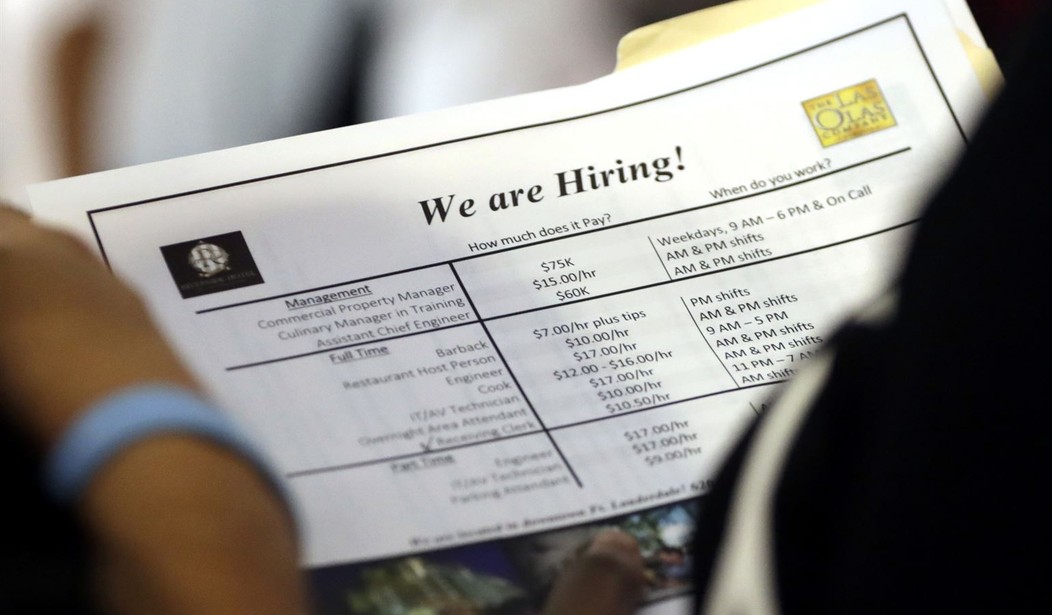Last week, the U.S. House of Representatives Committee on Small Business investigated how alternative paths to accumulating student debt can strengthen small businesses. America desperately needs solutions that offer upward mobility without the cost of college, which has become unaffordable for many people.
In my testimony in this week’s hearing, titled, “Help Wanted: Exploring How Alternative Paths to Student Debt Can Help to Strengthen Small Business,” I highlighted how the private and public sectors are innovating work choices for young people that don’t carry a 5-to-6-figure tuition price tag and opportunities for experienced workers who never stepped onto a college campus.
Young people and non-degreed older adults feel pressure to pursue higher education in order to secure their first job or a higher-paying job. This is due to “degree inflation” or the proliferation of college degree requirements for positions. The degree is often unconnected to job duties or performance but serves as a screening tool. Some 61% of employers rejected applicants with the requisite skills and experience simply because they didn’t have a college degree. This disproportionately harms groups with low college graduation rates, particularly Blacks and Hispanics.
While more Americans hold a college degree than ever before (37.9% of adults), some 70 million workers do not possess a college degree at all and their labor force outcomes are diminishing.
Workers face a quandary. A four-year degree is increasingly unaffordable without incurring debt. The rapid increase in the cost of college fueled by government-subsidized student loans has resulted in fewer working-class and poor students being able to afford it. Additionally, degree holders doubt that the benefits exceed the costs.
Recommended
Meanwhile, American businesses face unprecedented labor challenges: faltering labor force participation, labor shortages, and a skills gap. Some 9.9 million positions were open in March. Nearly half (47%) of small business owners reported job openings they could not fill. Yet there are 5.8 million unemployed Americans.
The “Every-Kid-To-College” movement, which promoted a four-year degree as the ideal path, stigmatized trades and directed many students away from entry-level careers in industries with ample opportunities and entrepreneurship potential minus the debt. Now, occupations and industries requiring specialized skills and training are dealing with more severe labor shortages. The construction industry faces a gap of a half million workers, which is projected to widen due to new federal infrastructure spending.
Industries are also losing experienced workers to retirement. About 10,000 baby boomers turn 65 — retirement age — each day. The entire generation is expected to reach retirement age by 2030.
Degree requirements may be an alternative to competency tests or other hiring tests, which courts have found to be discriminatory. However, degree inflation makes middle-skill jobs more difficult to fill. It forces employers to pay a premium to attract degree holders, who may not even outperform non-grads.
The college diploma has been a poor signal of soft skills such as critical thinking, teamwork, and writing skills. Employers also report that college grads have higher turnover rates, exhibit a greater propensity to defect to competitors, and are more likely to feel unengaged or underutilized compared with non-degree holders.
It’s time for a reset.
Let’s start with fighting degree inflation. Encouragingly, the Burning Glass Institute found that between 2017 and 2019, degree requirements declined overall in 63 percent of occupations, but more specifically in 46% of middle-skill occupations — the kind of positions that carry middle-class salaries.
At the start of the pandemic, private employers suspended degree requirements in dozens of occupations, particularly in the healthcare sector. If trends hold, a projected additional 1.4 million jobs could become available to non-degreed workers over the next five years. Private employers are increasingly embracing skills and competency-based hiring and partnering with local schools to develop programs that will build a pipeline of talent.
Although a bachelor’s degree has joined other forms of credentialing, such as occupational licenses, in creating a significant barrier to opportunity for Americans, as with licensing reform, there is growing bipartisan support among policymakers to fight degree inflation.
President Donald Trump sought to remove degree requirements in favor of competency and skills-based hiring for civil service employment. Several states, led by Republican and Democrat governors alike, have eliminated degree requirements for state jobs: Maryland, Utah, and Pennsylvania. Congress and other lawmakers should consider removing unnecessary degree requirements from all public service jobs.
A degree can be valuable for long-term earnings and opportunity, but the lack of a degree should not be an impediment for any American to experience economic mobility.
Patrice Onwuka is the director of the Center for Economic Opportunity at Independent Women’s Forum.

























Join the conversation as a VIP Member